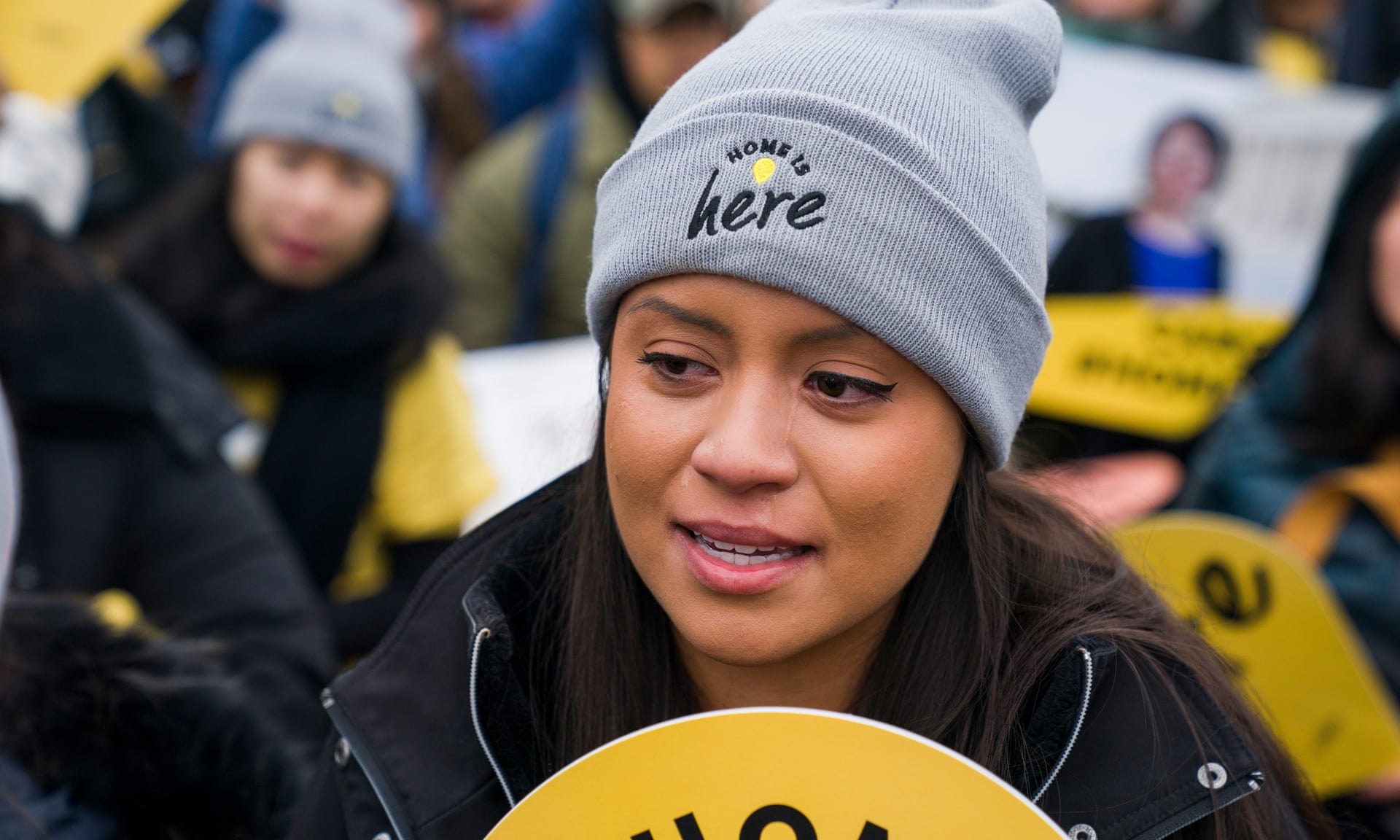Liberal justice defends Daca at supreme court and reflects on human impact of ending program that protects young migrants

The Trump administration should have to reckon with its decision to “destroy lives” by ending a program that protects young undocumented migrants, one justice declared as the supreme court deliberated the future of Deferred Action for Childhood Arrivals, or Daca.
The legality of Daca, which allows about 700,000 people brought to the US as youngsters to live and work in the country with two-year, renewable authorizations, was not actually the focus of Tuesday’s hearing.
Instead, the court was tasked with deciding if it was allowed to review the government’s decision to end Daca in 2017 and, if it was, whether the government followed the right procedures.
The 80-minute oral argument threatened to become bogged down in legal practicalities, but early on Justice Sonia Sotomayor asked where in the decision to rescind Daca did the administration explain “that this is not about the law, that this is about our choice to destroy lives”.
Sotomayor’s impassioned comments were a rare reminder from the bench that while the case is mired in legal minutiae, on the line is the future of 700,000 people who have Daca, and another 600,000 who could qualify if it is upheld. Some such people, known as Dreamers, gathered in the courtroom after waiting outside in rainy and cold conditions.
For Dreamers, the Daca battle has never been just about them. They are often the children of at least one undocumented migrant who does not have a path to legal status in the US, but stayed in the country for their children. Given temporary protection, Dreamers moved closer to being able to fight for families and friends who have not had the same opportunities.
Daca was implemented in 2012 by the Obama administration because so many people who knew the US better than the country in which they were born were forced to live in the shadows: working illegally, curbing dreams of higher education and living in fear of discovery that could turn their lives upside down.
It is not known how many young people have, since Daca was ended, decided to rebuild their lives in countries where they may not even speak the local language.
The liberal justice Stephen Breyer underscored the impact of Daca by listing how many entities had said they would be affected by its end: 66 healthcare organizations, three labor unions, 210 educational associations, six military organizations, three home builders, 108 municipalities and cities, 129 religious organization and 145 businesses.
Breyer said all the groups detailed the effect ending Daca would have, but underlined that those were separate from the central issue of 700,000 people potentially being forced to return to countries they barely knew.
It was Sotomayor, the first Latino supreme court justice, who put the human impact of the case front and center.
“[The US government] can’t, even when it wants to, remove the vast majority of aliens we have here,” Sotomayor said.
“And so I’ve always had some difficulty in understanding what’s wrong with an agency saying, ‘We’re going to prioritize our removals, and for those people, like the Daca people – who haven’t committed crimes, who are lawfully employed, who are paying taxes, who pose no threat to our security, and there’s a whole list of prerequisites – we’re not going to exercise our limited resources to try to get rid of those people.”
Sotomayor’s full-throated defense of Daca was expected, as she is one of four justices who reliably rule in favor of liberal issues.
In her first statement on Tuesday, she asked why more consideration was not being given to Donald Trump’s repeated declarations that he would help Daca recipients before he rescinded the program, giving them a six-month window to make alternative life plans and to hope Congress would step in to create a new program. Or, as Sotomayor put it, his attempt “to destroy your lives”.
The conservatives, who hold the 5-4 majority, seemed to support the government’s power to end the program. The solicitor general, Noel Francisco, argued that because Daca was always intended to be temporary, the benefits for Dreamers were always up in the air as well.
“The decision to end this non-enforcement policy was eminently reasonable,” Francisco said. “Daca was a temporary, stopgap measure that, on its face, could be rescinded at any time.”
The court will rule on the case in the middle of election season, between January and June next year.
If it decides it does not have the jurisdiction to review the case, the decision to end Daca will stand.
If it decides it does have jurisdiction, it could still say the government was within its rights to end the program. The future of Dreamers would then depend on the court’s argument.
If the court decides the government was wrong in how it ended Daca, the program will stand and it will be possible to file new applications.
Outside the courtroom, a crowd chanted “Home is here” and “Sí se puede”. Facing the Capitol from the steps of the court, in direct challenge to members of Congress, speakers at a rally declared: “I’m undocumented and I’m unafraid.”
https://www.theguardian.com/us-news/2019/nov/12/daca-supreme-court-immigration-undocumented
